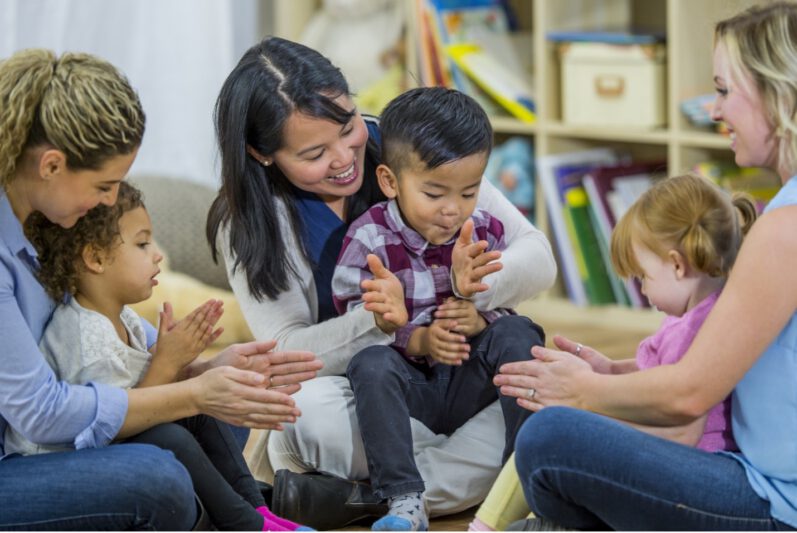Online learning, social distancing, and drastic changes in how families socialize outside of the home have decreased the number of opportunities children have to learn social skills. When children socialize with peers, they learn important skills they will use throughout their lives, like understanding expectations, sharing, or showing compassion to others around them.
Below are a few ideas about how to work on socialization with your child. Using these suggestions could help you encourage your child to learn important social skills that will be transferable in their interactions with others.
Toddlers 1-3 years old:
- Model sharing with your child.
- Tell your child what you are sharing and note how nice it is to share.
- Assist with turn-taking.
- Show your child how to share with another child by handing the other child something and verbalizing what you are doing.
- Have realistic expectations for your child’s level of socialization and age.
- Understand that your child may not be ready to share with others yet, and that is okay!
Children 3-5 years old:
- Help your child work through and resolve conflicts with peers.
- Encourage your child to consider a solution to a situation by saying, “I see you both want to play with blocks. Would splitting the blocks into two piles let both you and your friend play with the blocks?”
- Offer praise when your child shows a behavior you want them to continue.
- When you see your child showing behavior you would like to see again, encourage them by telling them how much you like that behavior.
- Help your child learn about tolerance and learn how to accept people who are different from they are.
- If your child becomes frustrated with or curious about people who they may see as different from they are, talk to them about how being different is okay and how everyone is different in various ways.
Children 5-10 years old:
- Use active listening to discuss different interactions your child has with peers.
- While your child is talking to you or telling you about a situation, focus on them and stay relaxed. Reassure your child you are listening to them by looking them in the eye, kneeling to their level, and repeating what they have said to you.
- Help them express their feelings about peer interactions.
- When your child tells you something, echo back what they have told you. Follow up with “it sounds like you are feeling” with whatever emotion they seem to be showing. This encourages your child to express themself.
- Use praise and encouragement often as you notice positive behaviors.
- Offer praise when your child communicates and expresses themself to you.
Adolescents 10-18 years old:
- Use effective communication strategies with your child.
- Use strategies like active listening in which you limit distractions (e.g., cell phones) and keep your focus on your child or incorporate family meetings into your monthly routine so all family members have a chance to be heard.
- Create an environment that outlines expectations and healthy boundaries for all family members to follow.
- Set clear rules and boundaries for topics like digital device usage, socializing with friends, and household expectations. Reinforce expectations in regular communications or through written action plans (e.g., Family Media Action Plan).
- Discuss what healthy relationships, including healthy romantic relationships, look like.
- Talk with your child about what relationships, both friendships and romantic relationships, should look like. Remind them that communication and boundaries are healthy and important aspects of any relationship.
Although social interactions and the way we socialize, in general, have changed over the last few years, children still need to learn healthy behaviors and positive communication skills. If you are concerned about your child’s social skills or have questions about their developmental milestones, please take time to review the resources below and have a conversation with your child’s pediatrician or your family physician. For further information about positive parenting and specifics about your child’s developmental expectations, please go to https://thrive.psu.edu to register for the online parent-education modules available at no cost to all families.
Additional Resources
Information for Parents of Infants and Toddlers: https://www.cdc.gov/parents/infants/index.html
Information for Parents with Children: https://www.cdc.gov/parents/children/index.html
Information for Parents with Teens: https://www.cdc.gov/parents/teens/index.html
Family Media Action Plan: https://www.healthychildren.org/English/media/Pages/default.aspx

